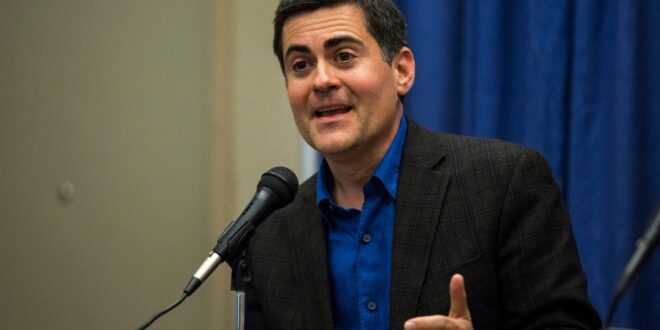Title: Survey Highlights Alignment between White Evangelical Clergy and Congregants’ Conservative Views
Introduction:
In recent years, several influential evangelical leaders have separated from their churches, primarily due to their congregations’ strong support for former President Donald Trump and conservative political ideologies. Notably, theologian Russell Moore and Bible study teacher Beth Moore’s departures underscore the perceived divisions between established evangelical clergy and ordinary believers. However, a survey published in Politics and Religion challenges this narrative, revealing that a significant majority of White evangelical clergy holds conservative political views that mirror, if not exceed, those of their congregants.
Survey findings:
The study, conducted by sociologist Mark Chaves and research associate Joseph Roso from Duke University, focuses on the alignment between the political views of clergy and their congregations. The survey reveals that 74% of White evangelical clergy reported having political views similar to those of their followers. Only 12% considered themselves more liberal, while 14% identified as more conservative than their congregants.
Contrasting views among denominations:
The survey’s findings indicate that other Christian denominations experience a more pronounced political divide between clergy and congregants. More than half (53%) of liberal mainline Protestant clergy consider themselves more liberal than their followers, while the same holds true for Catholic priests (53%). Meanwhile, Black Protestant clergy largely share the political views of their congregations, even though both groups lean more liberal compared to White evangelicals.
Historical perspectives:
The study notes that mainline Protestant clergy’s political liberalism dates back to the 1960s civil rights movement, when many clergy advocated for equality and justice for African Americans and opposed the Vietnam War. However, it remains unclear whether evangelical pastors have long aligned politically with their congregants or if this trend is a more recent development, as comprehensive national surveys exploring this issue are lacking.
Implications of alignment:
The survey suggests that politically aligned clergy find it easier to mobilize their congregations into a potent political force. White evangelicals have emerged as a significant voting bloc within the Republican Party, with many pastors using social media and raising concerns about perceived threats from the secular world to expand their influence. By contrast, the research highlights that liberal-leaning clergy face challenges in churches where congregants’ views differ significantly.
Potential reasons for alignment:
While the study does not delve into the reasons behind the political alignment between White evangelical clergy and their congregants, political scientist Paul Djupe suggests several factors. He posits that the congregational structure of evangelical churches, where members actively choose their ministers, influences the alignment. Additionally, differences in educational backgrounds could contribute, as mainline and Catholic clergy often pursue higher levels of theological education, which may expand their perspectives on social justice issues from a national or global standpoint.
Conclusion:
The survey findings shed light on the political landscape within different Christian denominations. They challenge the perception that evangelical clergy are more liberal than their congregants, highlighting the substantial alignment between the political views of White evangelical clergy and their followers, which has contributed to their influence as a voting bloc. While the reasons for this alignment require further exploration, understanding the dynamics between clergy and congregants is crucial for comprehending the broader political landscape within religious communities.
 Mind Uncharted Explore. Discover. Learn.
Mind Uncharted Explore. Discover. Learn.

